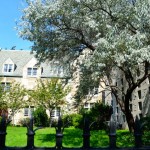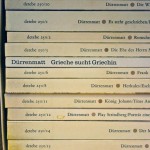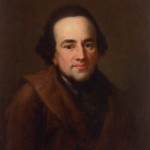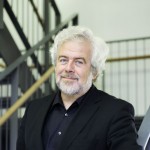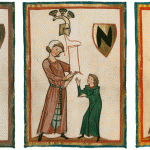Ph.D Student Contact hm.wickham@mail.utoronto.ca Background I completed my Hon. BA in Religious Studies at Mount Allison University. My research focuses on Tkhines, the intimate Yiddish prayers primarily aimed, written, and performed by women. These texts covered issues of daily life and life cycle events, playing a crucial role in the folk practices of Ashkenazi Jews and offering us critical insight into a worldview defined by shared feeling. Outside of school, I am a hobby crafter and enjoy embroidery, quilting, and repairing clothes. Read More »
Author Archives: Department of German
b2B Backpack to Briefcase Career Panel Discussion
October 15th, 2014, 6 p.m. Read More »
Amelia Glaser: “Sholem Aleichem, Russian Literary Critic”
April 17, 2014, 16:00. Munk Centre, Room 100. Sponsored by CERES. Co-sponsored by the Department of Germanic Languages and Literatures, Al and Malka Green Program in Yiddish Studies, Centre for Jewish Studies, Department of Slavic Languages & Literatures, Petro Jacyk Program for the Study of Ukraine Read More »
7th Annual Toronto German Studies Symposium
April 11-12, 2014. Munk School for Global Affairs, Room 208N. 7th Annual Toronto German Studies Symposium "Spectres of the Other Germany: 25 years after the Fall of the Berlin Wall". Organized by Stefan Soldovieri and co-sponsored by CERES. Read More »
German Drama Production “Turandot”
April 4-5, 2014, 19:30 German Drama Production "Turandot" Hart House Debates Room Read More »
German Studies Undergraduate Colloquium
March 29, 2014. Munk School of Global Affairs, Room 208N. Organized by Ulrike Kugler (Goethe-Institut Toronto), Christine Lehleiter (University Toronto) and Barbara Schmenk (University Waterloo). The event is co-sponsored by CERES. View the Read More »
Translating Ourselves: Mendelssohn’s ‘Living Script’
March 23, 2014. 10:00 – 17:00 Jackman Humanities Building, 170 St. George Street, Room 1040. Workshop presented by the Jackman Humanities Institute Program for the Arts on Translation and the Multiplicity of Languages. Organized by Willi Goetschel.Translation is the practice of negotiating difference and alterity. But what do we do exactly when we translate? As Eva Hoffmann puts it in her novel Lost in Translation, we also translate ourselves, and this experience of our own difference is what constitutes our identity. The basic moments that define translation as paradoxical if not impossible – substitution and equivalence as the constitutive transactions that ‘carry over’ only by way of conversion, change, and transformation – produce a logic that makes translation an act that resists closure. Moses Mendelssohn introduced the striking notion of Scripture as ‘living script’ arguing that the practice of commandments represents an alternative framework for understanding law, text, and translation. Mendelssohn’s approach highlights the performative act as central to interpretation. This has productive consequences for the theorizing translation. For Mendelssohn, the notion of the ‘living script’ makes it possible to comprehend translation in terms of action rather than just a hermeneutic exercise or transfer of information. With this move, Mendelssohn offers ... Read More »
“Constructing Sacred Space: Medieval Rituals of Church Dedication”
March 14, 2014, 14:00 Thomas Lentes (U Münster) Jackman Humanities Building, Room 100. Read More »
Wagner, Nietzsche und die “konservative Revolution”
6 February, 2014, 4 PM. Professor Dr. Jochen Hörisch teaches German Literature and Media Studies at the Universität Mannheim. Read More »
Forty-Ninth Conference on Editorial Problems: Rethinking Philology
Twenty-Five Years after the “New Philology” A Conference on Editorial Problems November 8-9, 2013 Jackman Humanities Building, 170 St. George Street, Room 100. Stephen Nichols Alexandra Bolintineanu Joel Fredell Emma Gorst Jessica Henderson William Robins Kathryn Starkey Markus Stock Michael Stolz Andrew Taylor If you have an accommodation need, please contact german@chass.utoronto.ca by 2 November 2013. We gratefully acknowledge support from the Social Sciences and Humanities Research Council, the Department of Germanic Languages and Literatures, the Centre for Medieval Studies, the Pontifical Institute of Mediaeval Studies, and the Committee of the Conference on Editorial Problems. Read More »
 Department of Germanic Languages & Literatures University of Toronto
Department of Germanic Languages & Literatures University of Toronto

